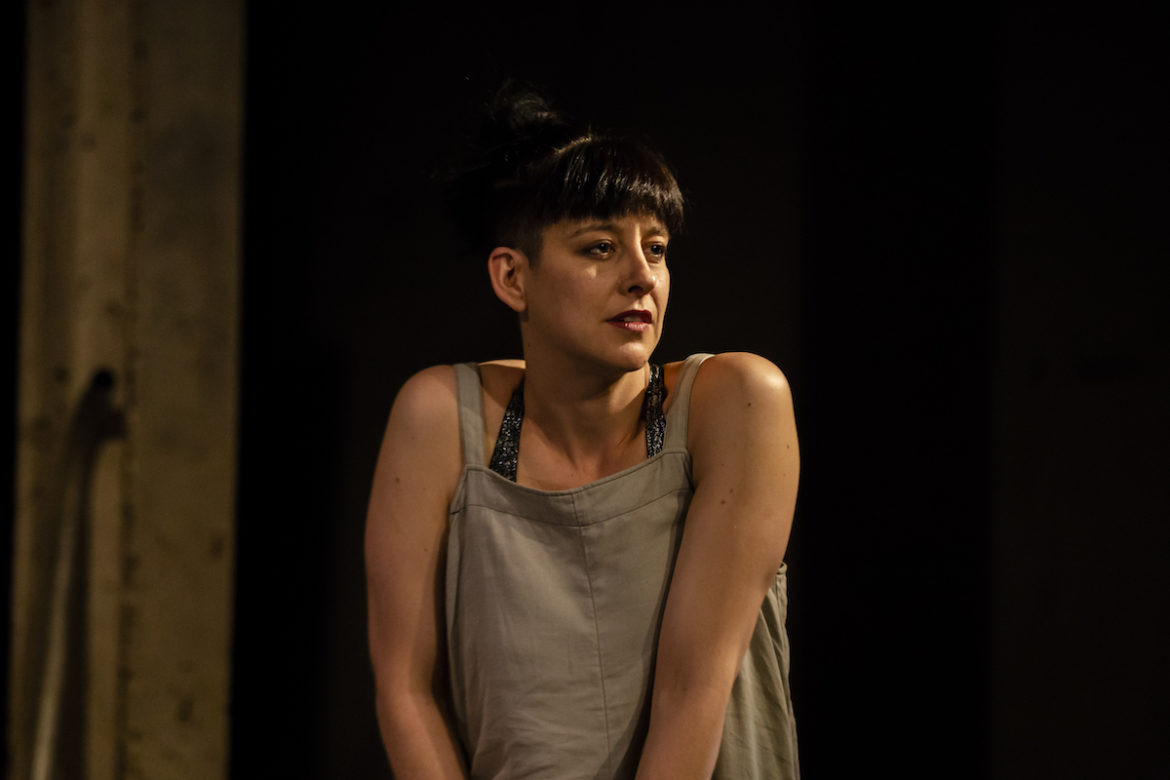World Problems opens up the political consequences of how we view our personal worlds, says Carissa Lee
One of my favourite words is sonder, which means “the realisation that each random passerby is living a life as vivid and complex as your own”. It signals the overwhelming consciousness that we’re not the only ones with a starring role in our own narratives.
As the audience responded to World Problems with knowing groans, nods and laughter, it reminded me that we all have things in common. It took us out of our own heads, our own problems and thoughts, and forced us to acknowledge the people around us. And after Hall lured us into recognising what we have in common, her vivid picture of a toxic, Orwellian surveillance society showed us that each of us is only one of many tiny dots on a planet that could be treated a lot better.
World Problems primarily delves into personal memories, opening up the political consequences of how we view our worlds. Inspired by German pop-historian Oswald Spengler and feminist theorist Donna Haraway, it’s written and performed by Emma Mary Hall, a performer who “uses performance to try to understand how political orders govern domestic and psychological worlds”.
Written in the second person as a list of “you remembers”, Hall’s performance uses fragmented memories to trigger nostalgia in the audience. When you walk into the auditorium, there are potted plants in the audience with their own seats, and their presence adds a sense of peace to the space. This show carries its themes into further action and there are environment-oriented workshops after some of the shows. (Details are at the bottom of this review).
Delivering the monologue entirely in second person is effective because it places the audience inside the vivid memories she shares with us. It doesn’t matter that we don’t necessarily share these recollections: not everything needs to belong to us. As the story progresses, we move from the past to the present day and on to a strange, ominous future: a world in which our skulls are scanned at airports, reproduction and caffeine are criminalised, and the Arctic is lost.
The audience is taken through memories of childhood, adolescence, and adulthood: Hall recalls moments such as phoning boys on landlines, the bike you used to ride, looking up your own name in the phone book. She leads her audience to painful places, like the first time you got blood on your school uniform, the nights you ran down the street from your boyfriend, the times you questioned whether or not an action was abuse.
Rachel Lee’s various lighting design moves from dimness, with drone-like sounds with piano plinks, to moments when the audience is bathed in water-like projections, to scenes when the house lights are up and the audience is as well lit as Hall. In these scenes we hear faint sounds of distant bombing, as she describes firestorms and fights in the street. The sound serves as edgy ambience throughout the production, but SS. Sebastian’s sound beautifully concludes the story with a childlike and hopeful piano score, as Hall jumps on a trampoline, summoning happier times of playing in summer, before heading into dinner.
Fleur Dean’s set is a bare stage with large metal pipes scattered randomly over the floor. There’s a black section hanging at the back of the stage with a shiny black circle in the centre. As the show progresses, Hall collects the metal pipes and connects them together, finally attaching them to the black circle to create a trampoline. I found it odd at first that she was building a trampoline, even when she finished putting it together and began to jump. But not long afterwards, she steps back, looks at her completed piece and says “it’s all we’ve got…it’s better than the last one”, and we realise she’s been building a world.
There are moments of audience involvement, such as Hall asking if someone from the audience can help her flip the metal circular frame she has just built, or when Hall sits in the centre of the half-constructed trampoline and asks if the audience would like to join her in a resonating “om”. This moment of meditation seemed to come out of nowhere: I was unsure why it needed to happen then, when we were completely engaged with Hall’s stories.
I left the performance uncertain whether or not I felt hopeful. This story highlighted the selfishness of our actions toward our planet and the increasing problems posed by technology and pollution. Maybe if we could remember the simple pleasures of a past time, there might be a chance for us. Maybe it’s all we’ve got.
World Problems, written, performed and directed by Emma Mary Hall, Produced by Asha Bee Abraham. Sound design by SS.Sebastian, set design by Fleur Dean, lighting design by Rachel Lee, dramaturgy by Prue Clark. At fortyfivedownstairs. Until March 24. Bookings
Contains coarse language
Auslan interpreted performance: Friday March 22
fortyfivedownstairs has disabled access to the theatre only. The back of our building is at Flinders Street level, however the gallery is only accessible by stairs. If you wish to attend a play or event in the fortyfivedownstairs theatre and require ground level access please contact the venue 24 hours before the event, or by 5pm on Friday if it is a weekend event.
The performance season is accompanied by a public events program, offering post-show workshops and discussions on themes related to the performance including the psychology of change, futurist gardening, and the place of art in societal transformation. Weekend ticket prices include admission to workshop.
Saturday 23 March: Eating the Future: Growing Sustainable Food Systems – Kat Lavers
Sunday 24 March: Economic Activism: Using your dollars for change – Rachel Deans
More information at this link

